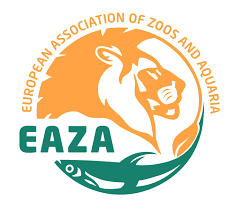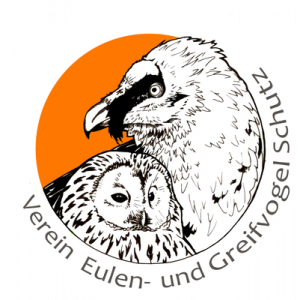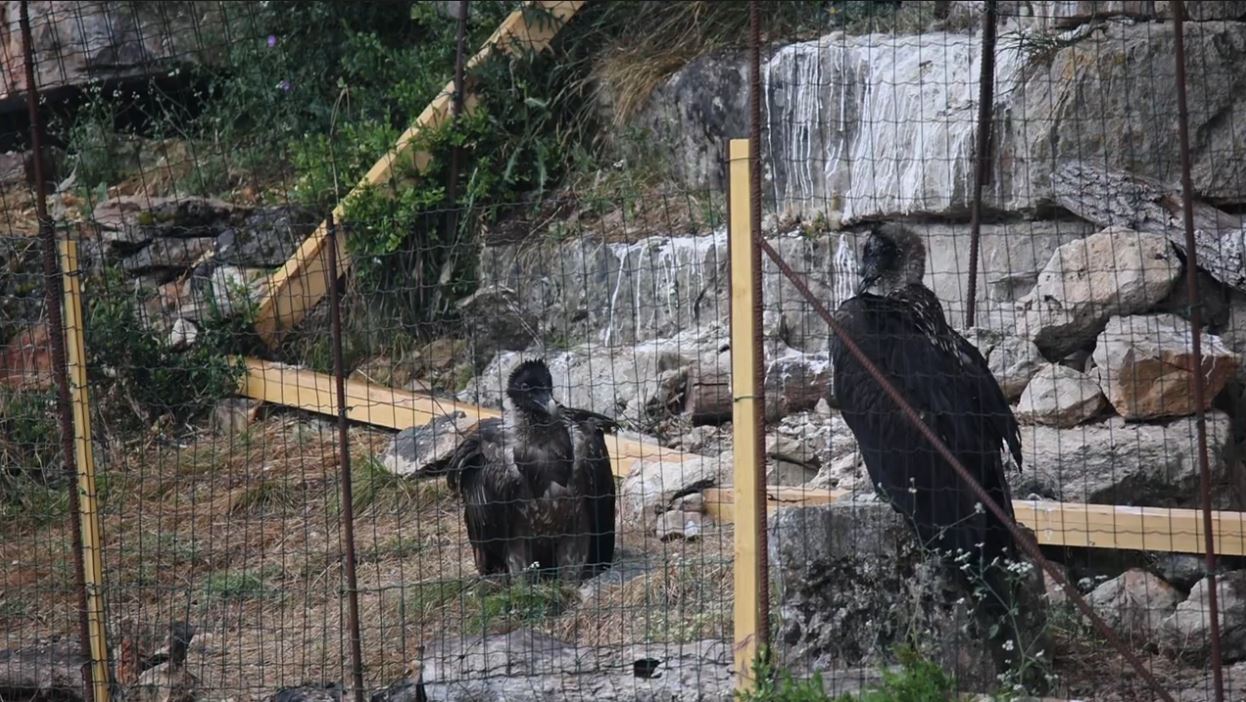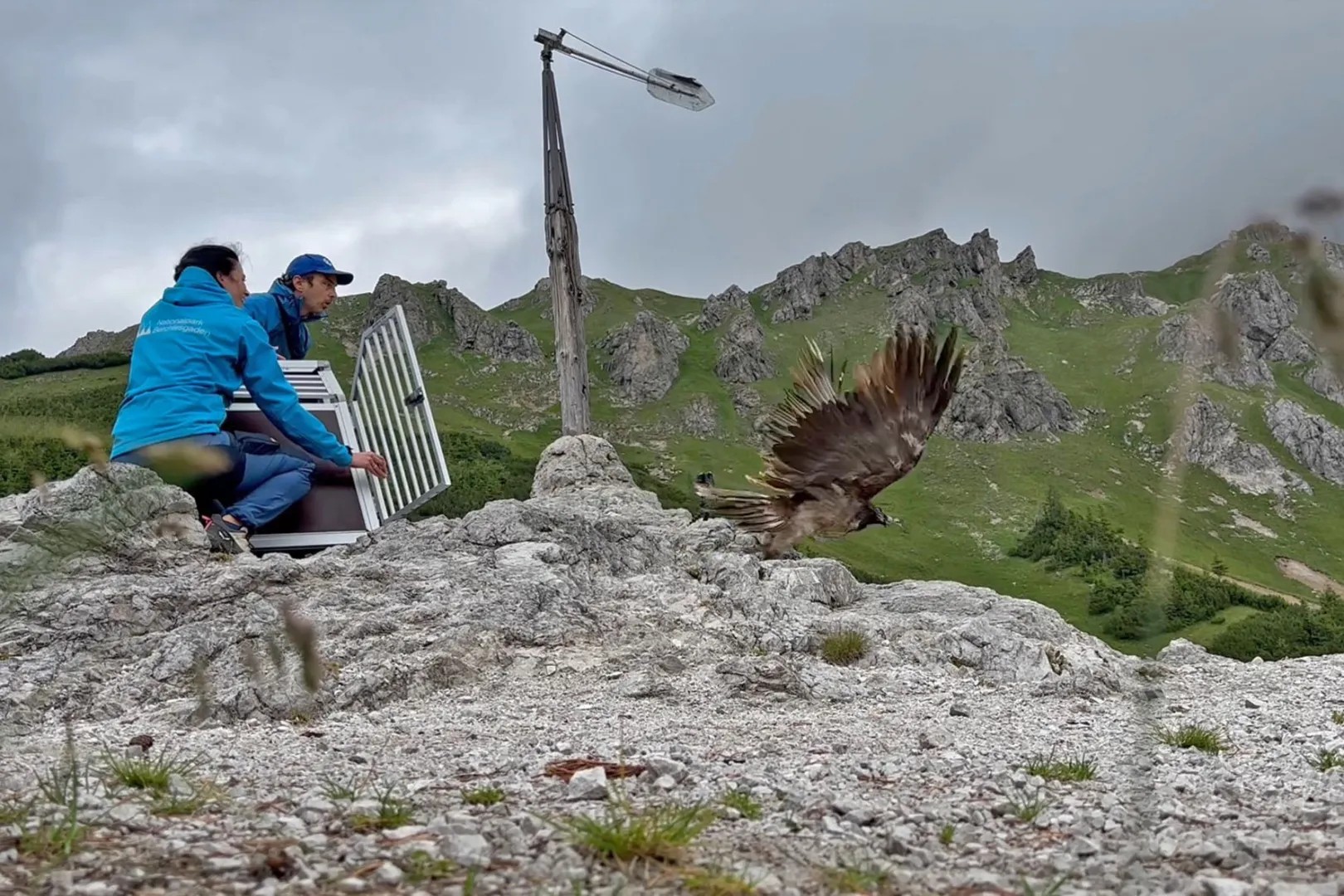
From Bulgaria to Spain, an adult male Bearded Vulture (Gypaetus barbatus) arrived safely last week at the Specialised Bearded Vulture Breeding Unit located within Vallcalent’s wildlife centre, managed by us at the Vulture Conservation Foundation (VCF). Over the last four years, the male lived in the Bulgarian NGO Green Balkans Wildlife Rehabilitation and Breeding Centre, and became recently a widower. The bird will now be paired with a female Bearded Vulture in Vallcalent. Will they bond?
Adult male Bearded Vulture transferred from Bulgaria
The male Bearded Vulture BG 1035, hatched in captivity in Liberec Zoo in 2019, descends from an old breeding pair, holding a genetic heritage of 12.5% from the Crete population and 87.5% from the Asian. The bird was transferred to the Green Balks Wildlife Rehabilitation and Breeding Centre when he was only a few months old. The male bird spent his last four years growing strong under the attentive care of the Green Balkans’ veterinary team and was paired with the female BG956. Unfortunately, the female died in August 2022 due to air sacks infection.

Male will be paired in Vallcalent
Pair bonding with adult birds is risky, as sometimes partners can become aggressive towards each other. As an opportunity to pair him again, the bird was transferred to one of the specialised breeding centres, for their extensive experience in dealing with difficult bondings. Vallcalent was the chosen captive-breeding centre to try pairing the bird with an older female.
The future female comes from Montowl, BG 620, born in 2010 in the Guadalentín specialised breeding centre. She also holds an essential genetic heritage, 100% from Asia. There are only three descendants of her father, BG172, one male and two females. The father, BG172, was the only descendant of a founder male BG031.

The Green Balkans will receive a juvenile pair
In exchange for the male, the Green Balkans will receive a Bearded Vulture pair hatched in captivity this year in Richard-Faust Zentrum (RFZ), BG 1170 x BG 1187. The transference of the pair is organised within the Life for the Bearded Vulture project, which has recently kicked off in Bulgaria. A seven-year project that will restore the former range of Bearded and Cinereous Vulture populations in the Balkans and help the genetic flow between Western Europe, Africa and Asia. Read more about the project here.



Pair bonding within the Bearded Vulture Captive-breeding Network (EEP)
Pairing Bearded Vultures in captivity is a science as much of an art. Àlex Llópis, VCF’s captive-breeding programme coordinator, is responsible for keeping track of the existing pairs and creating new bonds within the Bearded Vulture Captive-breeding Network (Bearded Vulture EEP).
The network has 182 Bearded Vultures held captive in 40 different institutions, from Zoos to specialised breeding centres like Vallcalent. The VCF coordinates it on behalf of EAZA’s Ex-Situ Programme. Every season, Àlex finds the right match between experienced adults whose partner passed away, individuals who did not pair successfully, the new juveniles born this year that are held captive, and irrecoverable birds from the wild that have eventually joined the network.
Establishing new breeding pairs
According to Àlex, the success of pairing Bearded Vultures depends on several factors. They are long-lived species and take up to 7 to 9 years to reach sexual maturity. Males, for instance, tend to be ready to mate before females, which sometimes poses a problem. If a pair is established and the male reaches sexual maturity before the female, she can become aggressive towards the male and cause him injuries. In these cases, the bonding is broken; usually, the birds must be paired with other individuals. Therefore, Àlex tries to guarantee that females are 1 or 2 years older than males.
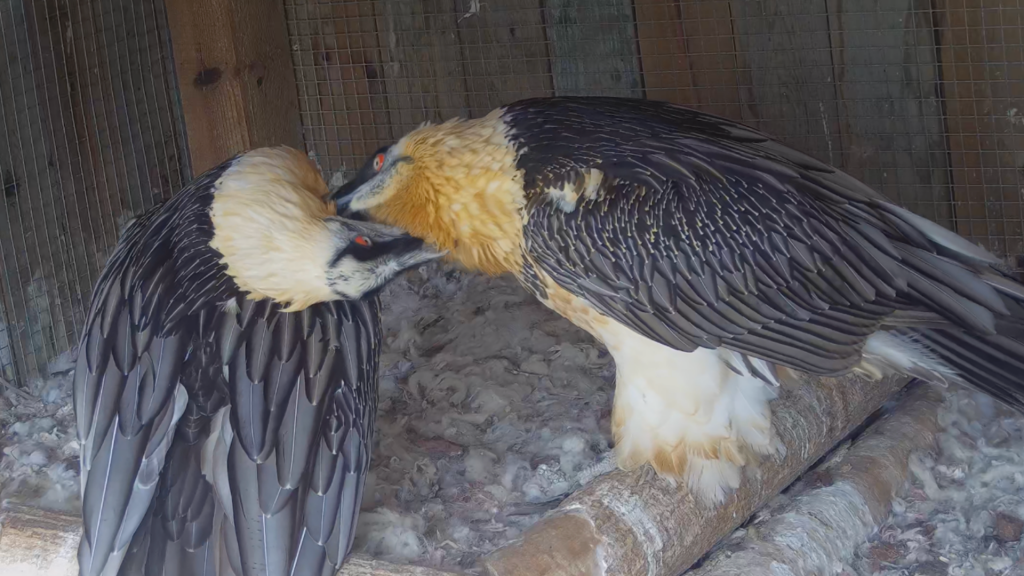
The breeding season is starting at Vallcalent
He hope the new pair will bond and follow the steps of the other breeding pairs established in Vallcalent. The new breeding season is starting, and five pairs at Vallcalent started building their nests. Until this moment, no mating was seen. Follow up the news on our social media channels and get the latest news on your inbox.

